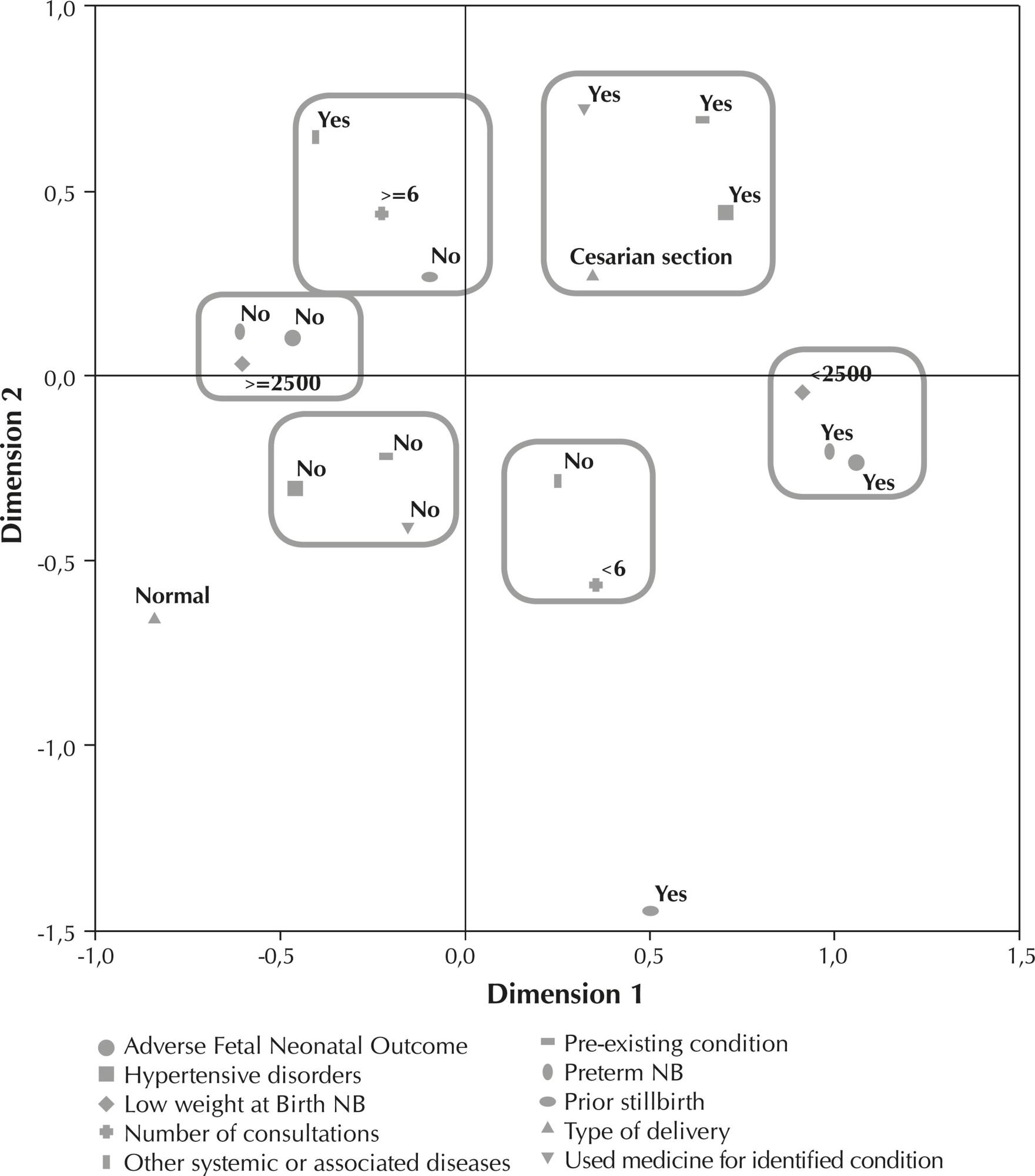-
REVIEW
Nursing care for parents who have experienced fetal demise: integrative review
Revista Brasileira de Enfermagem. 2024;77(1):e20220811
03-15-2024
Resumo
REVIEWNursing care for parents who have experienced fetal demise: integrative review
Revista Brasileira de Enfermagem. 2024;77(1):e20220811
03-15-2024DOI 10.1590/0034-7167-2022-0811
Visualizações0Ver maisABSTRACT
Objectives:
to identify scientific evidence regarding nursing care for parents who have experienced grief following fetal demise.
Methods:
an integrative review of original studies was conducted across six databases. The studies were classified according to the level of evidence.
Results:
the qualitative analysis of the nine studies comprising the sample involved thematic categories, exploring the impact of perinatal loss on families, inadequate communication by healthcare professionals, and the importance of a holistic approach in care. The role of the nurse is highlighted in making a positive contribution to the team, emphasizing participation in training and the provision of essential information.
Final Considerations:
grieving affects not only family dynamics but also the social environment, emphasizing the urgency of a more empathetic and comprehensive approach. Care should be holistic, going beyond technical nursing assistance, and addressing the biopsychosocial context of the parents.

-
ORIGINAL ARTICLE
Professional practice in caring for maternal grief in the face of stillbirth in two countries
Revista Brasileira de Enfermagem. 2021;74(3):e20200253
06-09-2021
Resumo
ORIGINAL ARTICLEProfessional practice in caring for maternal grief in the face of stillbirth in two countries
Revista Brasileira de Enfermagem. 2021;74(3):e20200253
06-09-2021DOI 10.1590/0034-7167-2020-0253
Visualizações0Ver maisABSTRACT
Objective:
to understand professional care for maternal grief in the puerperium of stillbirth.
Methods:
a clinical-qualitative study with all the women who had stillbirths living in Maringá (Brazil) and participating in the Center d’Études et de Recherche in Family Intervention at the University of Quebec in Outaouais in Gatineau (Canada). Semi-structured interviews were carried out and the relevant aspects were categorized into themes.
Results:
the identified categories were: Assistance received in the puerperium with a focus on grief: hospital and outpatient environment, and Professional support in coping with maternal grief after fetal loss: with contact and memories, without contact and without memories and impossibilities of contact with the baby.
Final
considerations: the need for a multidisciplinary support and monitoring network for women who experienced fetal loss was evident. From this study, a routine of care for grief can be implemented in Brazil based on experiences in Canada.
-
REFLECTIVE
Women with fetal death: nurses’ care limitations
Revista Brasileira de Enfermagem. 2019;72(suppl 3):365-368
12-13-2019
Resumo
REFLECTIVEWomen with fetal death: nurses’ care limitations
Revista Brasileira de Enfermagem. 2019;72(suppl 3):365-368
12-13-2019DOI 10.1590/0034-7167-2018-0261
Visualizações0ABSTRACT
Objective:
To present the limitations of the nursing care for women with fetal death, reflecting on this challenge for care practices.
Method:
Reflective study with theoretical focus on national and international publications, along with the experience of the authors in the area of women’s health and obstetrics.
Results:
There are limitations related to nursing care, which involve feelings of insecurity and powerlessness, inappropriate attitudes of these professionals in front of women, difficulties to manage emotional aspects, and structural problems of health services.
Final Considerations:
This study points out that there are challenges to qualify nursing care for women with fetal death, which included academic studies and continuing education in health services. Relational aspects should be valued and demand more sensitivity from nurses, with more empathic relationships in the care for women with fetal death.
Palavras-chave: Fetal DeathHealth Services Needs and DemandNurse-Patient RelationsNursing CareWomen's HealthVer mais -
PESQUISA
Fetal and neonatal deaths of children of patients classified as near miss
Revista Brasileira de Enfermagem. 2017;70(1):104-111
01-01-2017
Resumo
PESQUISAFetal and neonatal deaths of children of patients classified as near miss
Revista Brasileira de Enfermagem. 2017;70(1):104-111
01-01-2017DOI 10.1590/0034-7167-2016-0405
Visualizações0Ver maisABSTRACT
Objective:
identify the epidemiological aspects of early fetal and neonatal deaths in children of patients classified with near miss and the factors associated with this outcome.
Method:
a cross-sectional study of 79 women identified with near miss and their newborns. The variables were analyzed using Fisher’s exact test. Risk factors were estimated based on unadjusted and adjusted odds ratios, and by means of multiple correspondence analysis, with significance for p <0.05.
Results:
hypertensive disorders totaled 40.5%; Of these, 58.3% had adverse fetal and neonatal outcome. The newborns admitted to the Neonatal Intensive Care Unit proved to be significant for the outcome (70.8%), gestational age <32 weeks (41.6%), birth weight <2500 (66.7%), neonatal asphyxia (50%) and early respiratory discomfort (72.2%).
Conclusion:
prematurity, neonatal asphyxia, and early respiratory distress were significant characteristics for the outcome among newborns.




